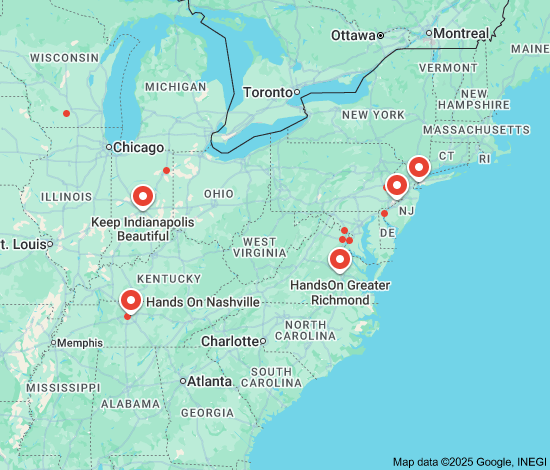The Impact of CASA Volunteers on Children in Need
Children who are in the foster care system often face numerous challenges and uncertainties. Court Appointed Special Advocates (CASA) volunteers play a crucial role in providing support and guidance to these vulnerable children.
CASA volunteers are appointed by judges to advocate for the best interests of abused and neglected children during legal proceedings. They work tirelessly to ensure that these children are placed in safe, permanent homes as quickly as possible.
One of the most significant impacts of CASA volunteers is the individualized attention they provide to each child. Unlike other professionals involved in the child welfare system, CASA volunteers typically work with only one or two cases at a time. This allows them to develop a deep understanding of the child’s unique needs and advocate effectively on their behalf.
Research has shown that children with CASA volunteers are more likely to find permanent homes, receive necessary services, and perform better in school. The presence of a consistent, caring adult can make a world of difference in a child’s life, especially during times of turmoil and uncertainty.
Furthermore, CASA volunteers serve as powerful voices for children who may otherwise go unheard. They attend court hearings, visit the child regularly, communicate with all parties involved, and make recommendations to the court based on their observations and findings.
In conclusion, CASA volunteers play a vital role in advocating for the well-being of children in need. Their dedication, compassion, and commitment make a lasting impact on the lives of vulnerable youth. By volunteering with CASA, individuals have the opportunity to make a difference in their community and help shape a brighter future for those who need it most.
Top 5 Frequently Asked Questions About Becoming a CASA Volunteer
- What is a CASA volunteer?
- How can I become a CASA volunteer?
- What are the responsibilities of a CASA volunteer?
- What training is required to be a CASA volunteer?
- How much time commitment is needed to be a CASA volunteer?
What is a CASA volunteer?
A Court Appointed Special Advocate (CASA) volunteer is a specially trained community member who is appointed by a judge to advocate for the best interests of abused and neglected children involved in the foster care system. CASA volunteers play a crucial role in providing individualized attention and support to these vulnerable children, ensuring that they are placed in safe, permanent homes as quickly as possible. By building relationships with the child, gathering information, and making recommendations to the court, CASA volunteers serve as powerful voices for children who may otherwise go unheard, making a significant impact on their well-being and future outcomes.
How can I become a CASA volunteer?
Becoming a Court Appointed Special Advocate (CASA) volunteer is a rewarding and impactful way to make a difference in the lives of children in need. To become a CASA volunteer, individuals typically need to undergo an application process, complete a screening and background check, participate in pre-service training, and be sworn in by a judge. The specific requirements may vary depending on the CASA program in your area. Interested individuals can reach out to their local CASA organization for more information on how to get involved and start the journey towards becoming a dedicated advocate for children who are navigating the foster care system.
What are the responsibilities of a CASA volunteer?
The responsibilities of a CASA volunteer are multifaceted and crucial in advocating for the best interests of abused and neglected children. CASA volunteers are tasked with conducting thorough investigations into the child’s circumstances, attending court hearings to provide recommendations, collaborating with relevant parties such as social workers and attorneys, and ensuring that the child’s voice is heard throughout legal proceedings. Additionally, CASA volunteers are expected to maintain regular contact with the child, monitor their well-being, and make informed recommendations to the court based on their observations. Overall, the role of a CASA volunteer is to serve as a dedicated advocate for the child, working tirelessly to secure a safe and permanent home while promoting their overall welfare and best interests.
What training is required to be a CASA volunteer?
Becoming a Court Appointed Special Advocate (CASA) volunteer typically involves completing a comprehensive training program to equip volunteers with the necessary knowledge and skills to effectively advocate for abused and neglected children. The training requirements for CASA volunteers may vary by jurisdiction but often cover topics such as child welfare laws, courtroom procedures, cultural competency, communication skills, and the role of a CASA volunteer. This training is designed to prepare volunteers to navigate the complexities of the child welfare system and ensure that they can fulfill their responsibilities in advocating for the best interests of the children they serve.
How much time commitment is needed to be a CASA volunteer?
The time commitment required to be a CASA volunteer can vary depending on the specific case and circumstances. On average, CASA volunteers are expected to dedicate about 10 to 15 hours per month to their advocacy work. This includes attending court hearings, meeting with the child, communicating with relevant parties, and preparing reports for the court. While the time commitment may fluctuate based on the complexity of the case and the needs of the child involved, CASA volunteers are encouraged to maintain regular contact and engagement throughout the duration of their service to ensure they are effectively advocating for the best interests of the child.




Leave a Reply